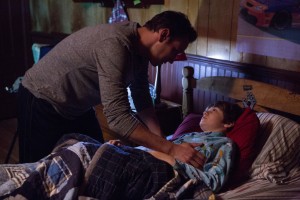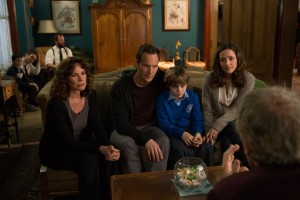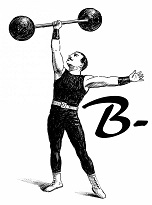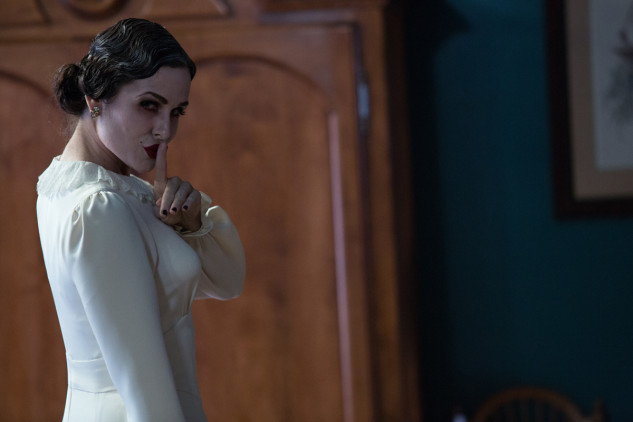In recent years, James Wan has risen to become one of the best contributors to the horror genre. From his surprise debut in 2004 with “Saw” to last summer’s hit “The Conjuring,” Wan has proven you don’t need gore to have a scary film. His latest release, “Insidious: Chapter 2” continues the trend. While better than its predecessor, it still suffers from a script that doesn’t give its actors much to work with.
The film begins almost immediately where the first left off. We are treated to a flashback of Josh as a young boy. We meet Carl, a medium, who enlists the help of Elise to figure out what is wrong with Josh. After realizing what is wrong, they decide to make Josh forget about his ability to astral project. The story jumps back to the present. Elise is dead, and Renai realizes that something is wrong with Josh. After moving in with Josh’s mom, Lorraine, unexplained activity starts up again, and Renai is forced to confront her fears about Josh.
The atmosphere is one of the highlights of the film. Despite living in a suburban area, Wan depicts a sense of loneliness and isolation when viewing external shots of the house at night. The lighting promotes eeriness. Even shots in the daytime don’t feel completely safe. However, the scares themselves vary. We get a typical fright of an object suddenly turning on by itself in one scene, but in another we’re treated to the sounds of eerie music when nothing is being played. Jump scares are the most frequent, though there are some extremely eerie scenes later in the film that could certainly leave you wanting the lights on at night. The trailer for the film unfortunately ruins some of the creepier scenes; they would have been better off left for the audience to experience as a first.

For the most part, the acting in the film is half-hearted at best. Rose Byrne as Renai is probably the best well-acted role. She plays a woman who is unraveling at what her family has experienced. She looks truly worn. She is constantly on edge and doesn’t trust her husband. Patrick Wilson, who was a strong lead in “The Conjuring,” is fairly flat for most of the film. This is partially understandable because of what happened to his character, but it seems like makeup is doing more of the job for him. Ty Simpkins as Dalton does his best, but at the end of the day he’s still a child actor with limited range. His sudden change in tone towards the end of the film seems off when you’d expect that’s the last thing his character would want to do. Steve Coulter gives one of the better performances. He has several scenes as Carl that delivers the sense of dread the film tries it’s best to give us.
Leigh Whannell’s script tries to be skillful in giving us the terror we so desperately crave, but ultimately it fails to deliver. There are some scenes when we’re back in The Further and in an abandoned hospital that provide this terror, but the dialogue is the weakest part. Most of what the characters say comes across as either unbelievable or just downright silly. An early scene with Renai and a detective illustrates this pretty well. Whannell has given us an interesting world to explore with The Further, but the scenes in the hospital come off as a knock offs of “Ghost Adventures” or some other kitschy show. The investigation that takes place would serve well as a part of its own film. I’d like to see Specs and Tucker in their own story — and we may get that wish depending on what direction Wan and company take the third film in.
 “Insidious: Chapter 2” builds off the world of the first film. Perhaps James Wan wasn’t as invested in this film as he was with “The Conjuring,” and it shows. “The Conjuring” was not only of the best films of 2013, but it was one of the best horror films in recent year . “Insidious’” problematic story and characters ultimately prevent it from achieving a greater status in the horror genre. Hopefully the third (and final?) film in the series will move in a new and refreshing direction.
“Insidious: Chapter 2” builds off the world of the first film. Perhaps James Wan wasn’t as invested in this film as he was with “The Conjuring,” and it shows. “The Conjuring” was not only of the best films of 2013, but it was one of the best horror films in recent year . “Insidious’” problematic story and characters ultimately prevent it from achieving a greater status in the horror genre. Hopefully the third (and final?) film in the series will move in a new and refreshing direction.
– by Mike Surerus


